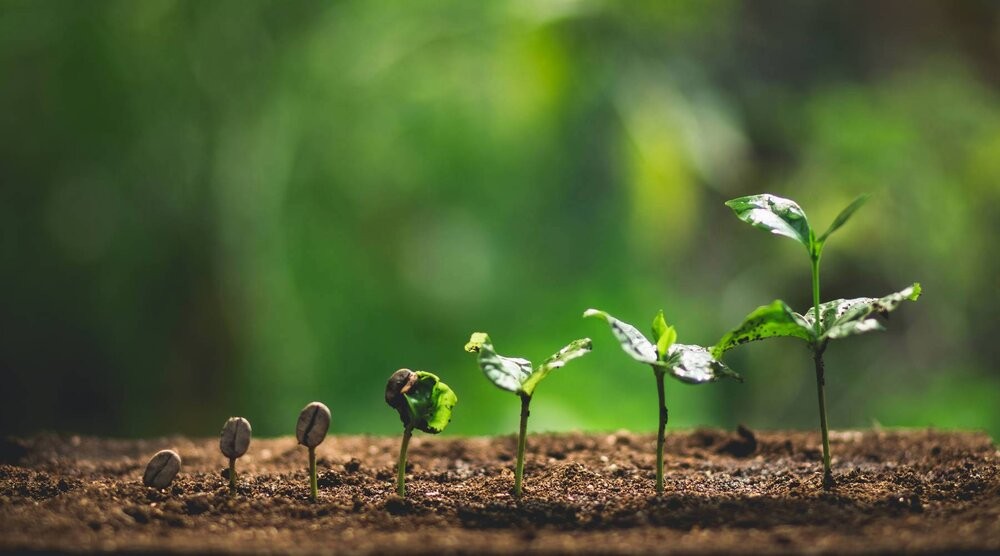
Chairman of EuroCham: Vietnam's path to sustainable green growth is full of potential
Latest
 |
| Vietnam's path to sustainable green growth is full of potential: Chairman of the European Chamber of Commerce in Vietnam Gabor Fluit said at the interview. (Photo: Quang Linh) |
Green and sustainable economic development is an inevitable trend in the context of the world facing many crises. Would you please share the green economic development situation of the European Union?
Growing up in the Netherlands, where sustainability is very important, I learned how eco-friendly development creates healthy and happy communities. This way of thinking is taught to us from a young age, and I'm glad to see many European countries and the European Union itself adopting it.
The EU wants to be the world's first climate-neutral continent by 2050. To head in this direction, it has promised to reduce its emissions by at least 55% by 2030 compared to 1990 levels. This is a big reduction, and it will mean making major changes to its economy.
To make this happen, the EU has set strict rules for reducing emissions in important areas like energy, transportation, and buildings. These rules are enforced through an updated system for trading emissions. The EU is also putting money into natural carbon sinks, like forests and wetlands, to help capture carbon dioxide from the air.
In the meantime, to make transportation greener, the EU wants all new cars and vans registered in Europe to be zero-emission by 2035. To make this change happen, the EU has set a goal to reduce average new car emissions by 55% by 2030. This big reduction could only be achieved through a society-wide push towards electric vehicles and by building a widely-accessible network of charging stations.
For renewable energy, the EU wants to have at least 42.5% of its energy coming from renewable sources like solar and wind power by 2030. If everything goes well, it may even reach 45%. As a result of this increase, European countries will have to rapidly build more renewable energy plants. To go along with its renewable energy goals, the EU has also set a strict rule to improve energy efficiency by 11.7% by 2030. These ambitious goals for renewable and efficient energy are part of the REPowerEU plan, which wants to make the EU's energy sources more diverse, decrease reliance on fossil fuels, and accelerate the transition to a clean energy economy.
How do you assess the prospects for green economic development in Vietnam? What experiences can Vietnam learn from Europe?
Vietnam's path to sustainable green growth is filled with potential but faces significant challenges, particularly in terms of the country upping its renewable energy capacity.
For example, Vietnam urgently needs to upgrade its power grid to not only connect existing, already-invested solar and other clean energy projects but also to support future ones. Neglecting this upgrade could result in more frequent power shortages, disrupting daily life and businesses.
This instability is particularly problematic for vital high-tech industries that require consistent power, like semiconductor manufacturing, data centers, IT services, telecomms, healthcare and so on. Without a stable and robust energy infrastructure, attracting foreign investment in these critical sectors, crucial for Vietnam's economic growth and technological advancement, becomes increasingly difficult.
Europe's role in assisting Vietnam is crucial, especially in sharing experiences and knowledge in renewable energy. This collaboration can help Vietnam avoid past European challenges and swiftly and safely meet its renewable energy goals. Joint projects can provide hands-on training in energy planning, grid management, and infrastructure development. Moreover, technology transfers could quicken the adoption of innovations like electric vehicles, battery storage, and smart cities. Collaborative funding solutions can also alleviate the financial burden of the energy transition.
We held our Green Economy Forum (GEF) in Hanoi in November 2023 to achieve this goal, and we will do the same with our GEFE in southern Vietnam in November 2024. Our 15th annual Whitebook will also provide valuable insights on green development. We will launch it in Hanoi on 16 January 2024, with a dialogue event with the Government.
 |
| Vietnam is already attracting a lot of foreign investment in renewable energy, green technology, electric vehicles, energy storage, and sustainable agriculture. (Photo: Tap chi Tai chinh) |
How do you assess Vietnam's opportunities to attract FDI capital for green economic development?
Vietnam is actively making itself more attractive for foreign investment, especially investment that supports the country's national sustainable development goals. A survey of EuroCham members found that 63% of them rank Vietnam among their top 10 places to invest, and 31% of them rank it among their top three investment targets. This shows that Vietnam has strong green growth potential, and this number will only continue to grow if Vietnam continues to be proactive in developing its strengths.
Vietnam is already attracting a lot of foreign investment in renewable energy, green technology, electric vehicles, energy storage, and sustainable agriculture. Some large companies have already invested in Vietnam, such as the Lego Group, which is currently building a $1 billion solar and biomass-powered factory in Binh Duong. Green investment of this scale shows the world that Vietnam is open for business. They also help build a more developed ecosystem for supporting industries, making it easier to attract more high-quality FDI as time passes.
At the same time, Vietnam's expanding middle class and increasing consumer awareness about sustainability are driving demand for green products and services. This rapidly growing market presents a great opportunity for foreign investors seeking to benefit from consumer trends that favor environmental responsibility.
While Vietnam has made strides in infrastructure and business climate improvements, now is absolutely not the time for complacency. Efforts to enhance logistics, energy grids and digital connectivity have often been slower than needed. And while the Government is clearly working to allocate more funding toward critical infrastructure projects, the urgency of accelerating capacity growth cannot be overstated.
With the right conditions in place, specific sectors like wind energy, solar, electric vehicles and climate-resilient infrastructure will definitely see a big increase in foreign investment. European interest in these areas is already substantial but awaits a regulatory environment capable of launching and sustaining growth.
In your opinion, to attract good quality FDI into green economic development, what does Vietnam need to do?
Sustainability is becoming increasingly critical for European companies operating in Vietnam, with 8 out of 10 EuroCham members citing it as a priority, according to our Business Confidence Index.
However, a gap exists between these priorities and their implementation. This is mainly because of problems like not having clear rules, not having the right infrastructure, and not getting enough government support. If Vietnam wants to continue to attract foreign firms to invest in sustainable development, these issues must be resolved.
For instance, companies seeking to establish green factories need regulatory support to install renewable energy systems, energy storage devices, and associated infrastructure. Without such support, many companies' climate goals cannot be achieved, hurting their bottom line and their reputation. It is unlikely that they will come to Vietnam if this is the case.
While European regulations such as the CBAM and the EUDR address critical environmental concerns, it's important to highlight that Vietnam has the opportunity to embrace these global standards as part of its commitment to sustainability and competitiveness. By adopting adapted reporting, disclosure, and supply chain diligence practices, Vietnam can make significant progress within its own environmental policy framework, demonstrating its environmental achievements and positioning itself favorably in the EU and global markets.
EuroCham understands very well that meeting these regulations will be quite costly and challenging, because we regularly hear this from Vietnamese and European companies alike. To help, EuroCham is focused on boosting the abilities of businesses in affected industries. This means offering training and equipping them with the skills they need to deal with the changing rules. We also believe in having open conversations about the details of these regulations to make sure everyone understands and can follow the EU's sustainability rules. EuroCham is actively working with the Ministry of Foreign Affairs to assist companies in all parts of Vietnam, giving them the tools and knowledge they need to follow these rules quickly and thoroughly.
Vietnam has also made important progress in renewable energy, such as solar and wind power. Yet, the country needs to expand its renewable energy capacity because its growing economy demands more energy. This urgency underscores the need to accelerate the development of renewable energy sources and enhance energy distribution across Vietnam to ensure everyone has enough power, regardless of the weather. This will involve a mix of updated grid infrastructure, many new renewable energy production installations, and innovative energy storage solutions. Additionally, policies and incentives that encourage investment in renewable energy projects will be crucial. The government may also need to focus on workforce training to equip people with the skills needed for this expanding sector.
To move faster in this direction, and can create a sustainable, resilient, and efficient energy system to support its ongoing economic growth, Vietnam should prioritize transparent and equitable methods to invest in improving energy efficiency and increasing the use of renewables like solar power, biomass, small hydropower, wind power, and offshore wind. Vietnam can also establish a well-structured plan for deciding who can undertake these energy projects. For instance, having a single organization responsible for handling permissions and approvals for renewable energy projects can streamline the process.
Thank you so much!





















